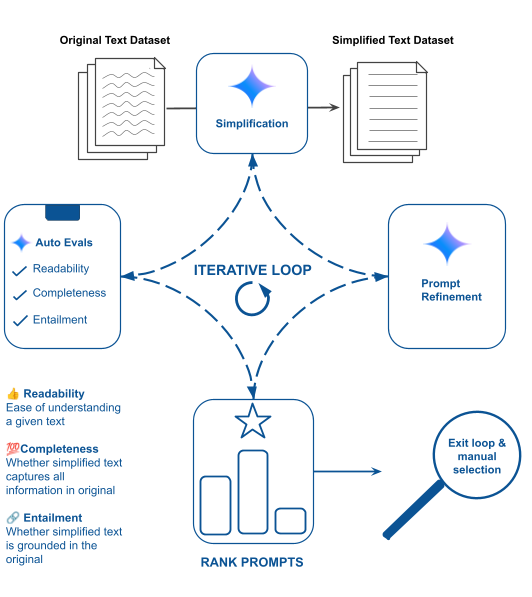Unlocking Complex Information for Everyone
Understanding specialized or technical text can be overwhelming, especially when every detail matters. Google Research is tackling this challenge with Gemini AI, introducing a minimally-lossy text simplification system designed to make complex content accessible to wider audiences—without sacrificing accuracy or nuance.

The Challenge of High-Fidelity Simplification
Unlike summarization or explanation, minimally-lossy simplification is all about rephrasing text for clarity while preserving its essential meaning. This approach is crucial in domains like healthcare, law, and finance, where the smallest detail can be significant. Now, with the Simplify feature in the Google app for iOS, users can instantly view an easier-to-understand version of any web text—right within the page.
Automated Evaluation and Iterative Refinement with Gemini
Ensuring high-quality simplification takes more than just clever wording. Google built an automated evaluation and prompt refinement loop powered by Gemini, eliminating the need for slow, manual prompt engineering. Here’s how the system works:
- Readability Assessment: Gemini rates how easy the text is to understand using a 1-10 scale, going beyond traditional scores like Flesch-Kincaid and aligning results with human judgment.
- Fidelity Assessment: With Gemini 1.5 Pro, the system checks that every claim in the original is retained in the simplified version. It detects and weighs errors—including missing details, added information, or meaning changes—by severity.
- Prompt Refinement Loop: Gemini analyzes performance, iteratively proposes better prompts, and runs hundreds of cycles. This self-improving process uncovers the best strategies for nuanced simplification, with minimal human input.
Measuring Impact: Rigorous User Study
To evaluate real-world effects, Google Research ran a large-scale randomized controlled study with 4,563 participants. They tested 31 challenging text excerpts from fields like medicine, law, finance, and technology.
- Participants read either the original or simplified text, then answered multiple-choice questions (MCQs) to assess comprehension and retention.
- Researchers tracked MCQ scores, self-reported confidence, and cognitive load using a simplified NASA Task Load Index.
Key Findings
- Improved Comprehension: Simplified text led to a 4% overall increase in MCQ accuracy, with gains up to 15% for medical research articles.
- Better User Experience: Users felt more confident and found reading easier, with perceived task ease improving by 0.33 on a -2 to 2 scale.
- Clearer Understanding: The biggest benefits appeared for those starting with low comprehension—some examples saw up to 38% improvement in accuracy.
Limitations and Ongoing Work
Despite the study's broad scope, it may not fully reflect the needs of users who actively seek to decode complex information. Relying on MCQs may not capture deep understanding, and large language models can still make mistakes. Ongoing monitoring and refinement remain essential as this technology develops.
Takeaway: Bridging the Comprehension Gap
Through automated evaluation, iterative refinement, and rigorous testing, Gemini delivers high-fidelity text simplification at scale. This breakthrough empowers users to engage with challenging material and makes expert knowledge more accessible in critical domains. The Simplify feature in the Google app is a major step toward a more inclusive information environment.
Source: Google Research

How Gemini AI Makes Complex Information Understandable: Inside Google's Minimally-Lossy Text Simplification